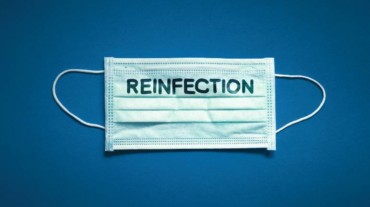
With the covid-19 infection, comes the fear of reinfection. Yes, reinfection by the novel coronavirus is possible—and let’s say face it, it’s a scary prospect for all of us. The good news is that reinfection may take at least eight months, if this new research is to be believed.
According to Australian scientists, people who have recovered from the novel coronavirus infection have immune memory to protect against reinfection for at least eight months. These findings were a part of a study which provides strong evidence for the likelihood that covid-19 vaccines will work for long periods.
While earlier studies have shown that antibodies against the coronavirus wane after the first few months of infection, raising concerns that people may lose immunity quickly, the new research, published in the journal Science Immunology, puts these concerns to rest.
According to the scientists, including those from Monash University in Australia, specific cells within the immune system called memory B cells, “remembers” infection by the virus. And if re-exposed to the virus, triggers a protective immune response through rapid production of protective antibodies.
In the study, the researchers recruited a cohort of 25 covid-19 patients and took 36 blood samples from them from day 4 post infection to day 242 post infection.
The scientists found that antibodies against the virus started to drop off after 20 days post infection.
However, they said all patients continued to have memory B cells that recognised one of two components of the virus—the spike protein which helps the virus enter host cells, and the nucleocapsid proteins.

Based on their analysis, the researchers said these virus-specific memory B cells were stably present as far as eight months after infection.
Also, read: Chances of reinfection high if covid-19 antibodies start reducing within 5 months: ICMR
The scientists believe the findings give hope to the efficacy of any vaccine against the virus, and also explains why there have been very few examples of genuine reinfection across the millions of those who have tested positive for the virus globally.
Select Topics of your interest and let us customize your feed.
PERSONALISE NOW“These results are important because they show, definitively, that patients infected with the covid-19 virus do in fact retain immunity against the virus and the disease,” said study co-author Menno van Zelm, from the Monash University Department of Immunology and Pathology.
“This has been a black cloud hanging over the potential protection that could be provided by any covid-19 vaccine and gives real hope that, once a vaccine or vaccines are developed, they will provide long-term protection,” van Zelm said.